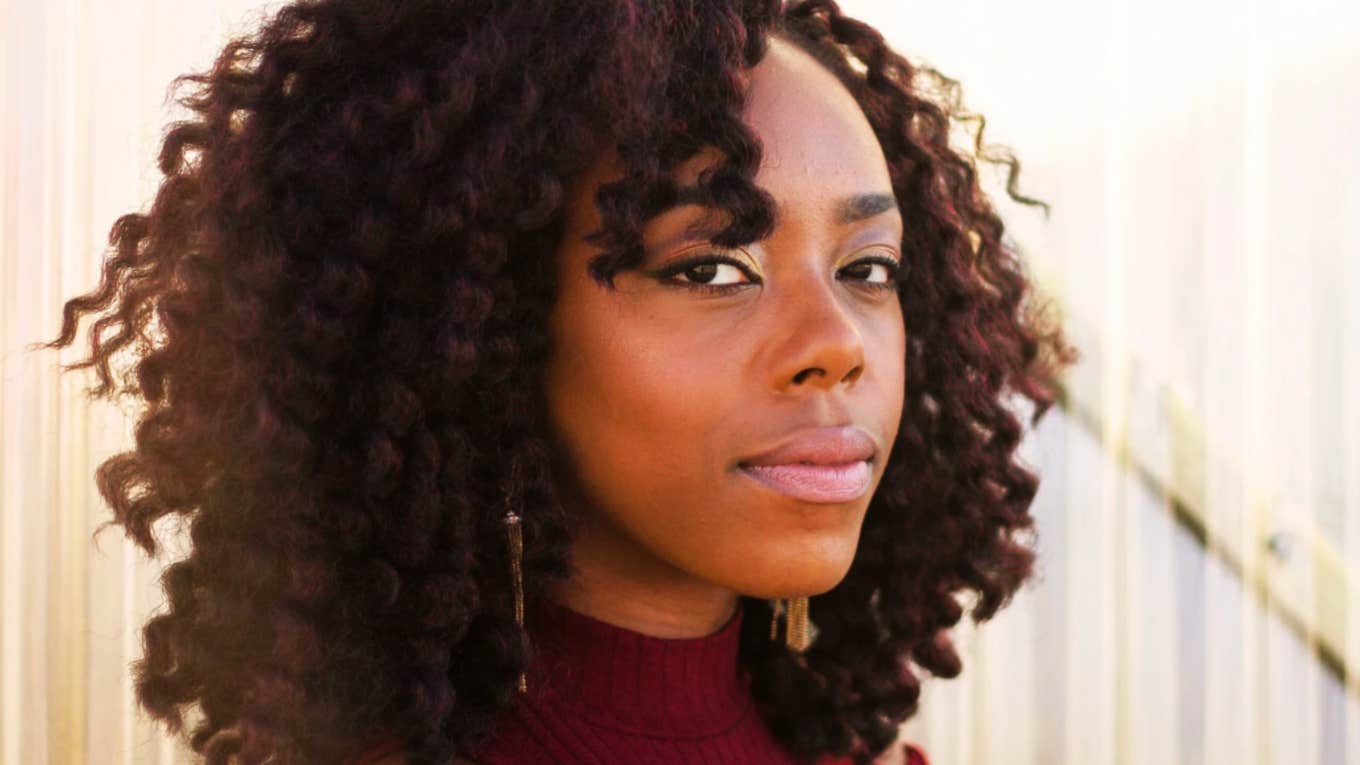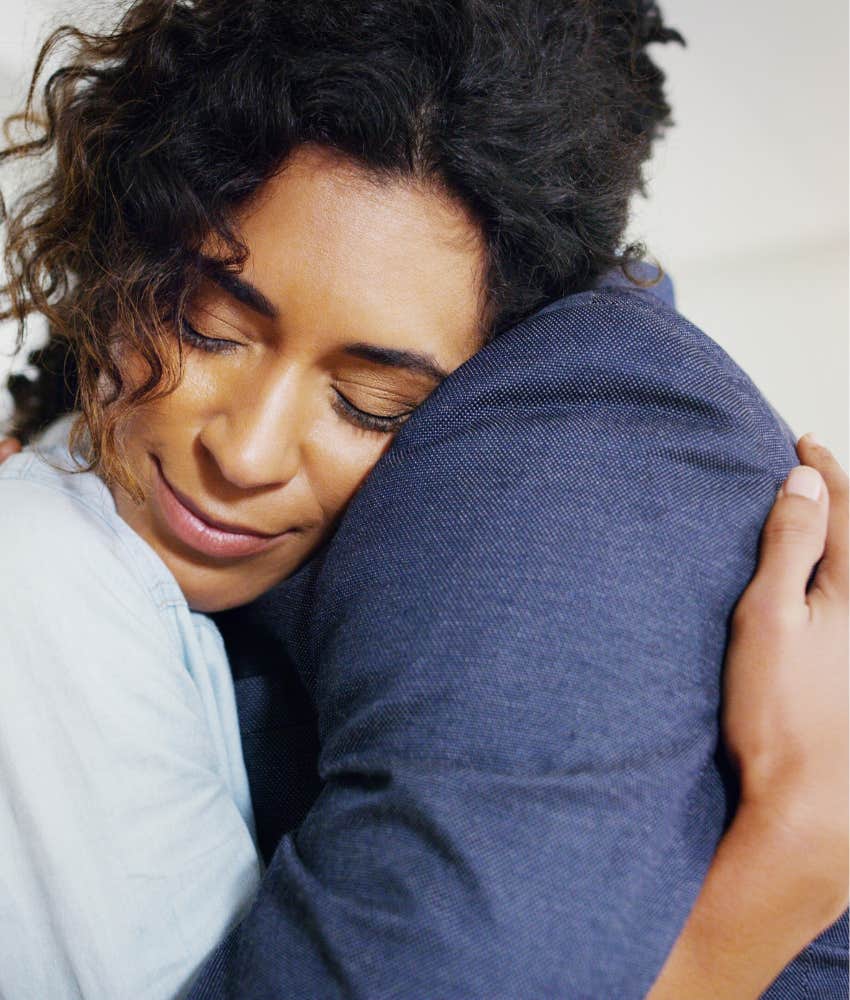Women Who Refuse To Feel Lonely In A Relationship Do These 4 Things As Soon Their Partner Grows Distant
Some of life's loneliest moments happen when you feel single in your committed relationship.
 StockSnap | Canva
StockSnap | Canva There are few worse sensations than feeling alone in a relationship. The loneliness feels like a gut-punch because great relationship makes you feel like you can conquer anything. You're on a team and you share the good times and the bad. Suddently, that is gone.
When you start feeling lonely in that relationship, it can feel like a monumental loss. Believe it or not, feeling stuck in a lonely marriage or long-term relationship is common. Fortunately, "common" doesn't have to mean "inevitable". If your partner grows distant, start doing these four things now.
Women who refuse to be feel lonely in a relationship do these four things
1. They communicate clearly and effectively
If you've been feeling the heavy cloak of loneliness draped over your shoulders, even though your partner is only a few feet away, it's time for a conversation. Like, a real, in-depth conversation about where you stand.
“Whether something’s changed or not, try to talk openly, without accusation or anger. Express your needs and listen to him. If he’s receptive, make time to connect every day. Talk about your feelings and his,” Cohen suggests.
If you're experiencing feelings of loneliness in your relationship, you need to bring the issues to light. Sit down and talk to your partner, discussing how you feel and what you need from them. But be sure to listen to what your partner needs as well.
You owe it to yourself to speak up and do whatever's necessary to make you feel connected again. Don't wait around for another opportunity.
2. They choose to be more vulnerable
 PeopleImages.com by Yuri A | Shutterstock
PeopleImages.com by Yuri A | Shutterstock
Vulnerability is a strong way to establish an emotional connection, and shows the strength of a relationship. It means you aren't afraid to be open and honest with each other, share your deepest feelings or concerns, and determine a way to move forward together.
Opening up to your partner is also a great way to signal to them that they can do the same. Tell them something personal they don't know about you, or tell a story that will help them relate to you.
Adds relationship coach Deborah Roth, "Maybe you’ve both gotten a little lazy, or maybe the rest of your life is pulling your attention away from your partner. But remember: creating and maintaining a successful relationship requires work on both sides."
3. They commit to spending time together
Sometimes, we can get so caught up in our busy, everyday lives that we neglect the person most important to us. Over time, this can cause a disconnect, so it's important to find time where you can make your partner your focus and vice versa.
Suggests Roth, "If you’ve got children, when was the last time you scheduled a date night? In these pandemic times, that might not be a dinner out, but it could be planting your kids in front of Netflix for a good hour or three so the two of you can get some much-needed alone time together. Maybe it’s scheduling a regular 'screen-free' check-in time in the evenings just to cuddle and catch up on each other’s days. Create an intention with your sweetie and make it happen."
In other words, plan things you can both enjoy, do them together, and get alone time. You can reignite that spark and rebuild the connection you have lost.
4. They consider ending the relationship
If you've tried to spend time together, opened up to your partner, and have communicated your needs, but nothing seems to be working, you have to face the reality that you may need to end your relationship.
“If you can’t work it out, decide if it’s time to move on. If it’s too hard to do this alone, reach out to a therapist or a couple's therapist. It can help!” Cohen recommends.
Loneliness can have detrimental effects on your mental health, so it's better to be single and happy than be miserable together. You may not even have to entirely break up; rather, you can just take time away from each other. Having a week or two to yourself might just help you see things differently.
If you have irreconcilable differences, it would be better to just separate amicably so that you can move on. It's hard, but would you rather live a lie and walk on eggshells, or change to make yourself feel better as a whole even if you are alone?
Why do so many people feel alone in relationships?
Psychologist Sandra E. Cohen, Ph.D., says the most common reasons people feel lonely in relationships have to do with communication. While the specifics vary from relationship to relationship, if you feel alone with your partner, there is either a fundamental lack of communication between you or the standard at which you used to communicate has been significantly lowered.
In the first of these two scenarios, Cohen asks, "Has it always been this way? If it has, there are a few things to consider. Do the two of you have entirely different needs and interests? Are they always busy and unable to prioritize time with you? Are they unemotional, rejecting, or critical, making you withdraw? Do you have a hard time expressing your needs?"
If the second scenario sounds more like your situation, Cohen asks, "Did something change? If so, what happened? Is this due to stress or something going on with them that isn’t about you or the relationship?"
When you're in a relationship, feeling lonely is a sign of not feeling connected to your partner, and, if at one time you guys were super in sync, it can be sad. Miscommunication can cause serious damage to the relationship. There's no longer the emotional connection that begged for one another to be vulnerable with each other.
Therefore, when there's an unwillingness to be vulnerable, it dissipates the level of connection, allowing for distance to grow. This distance makes you feel like you are no longer close with your partner, causing you to feel lonely.
According to The World Health Organization, more than 264 million people suffer from depression. Depression is often overlooked, but in reality, it is the leading cause of disability. Depression should be taken seriously.
Emily Blackwood is a freelance writer, editor, and journalist who covers relationships, entertainment & news, pop culture, and wellness.

